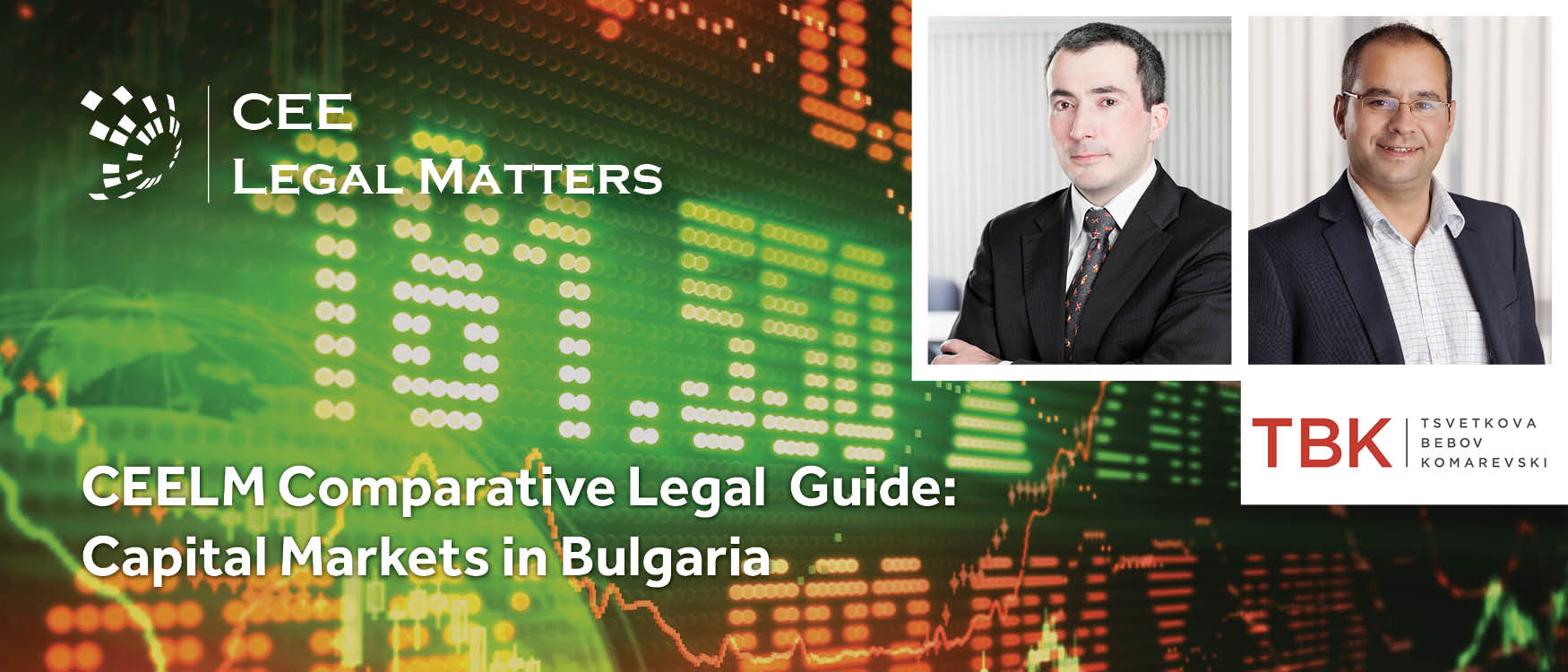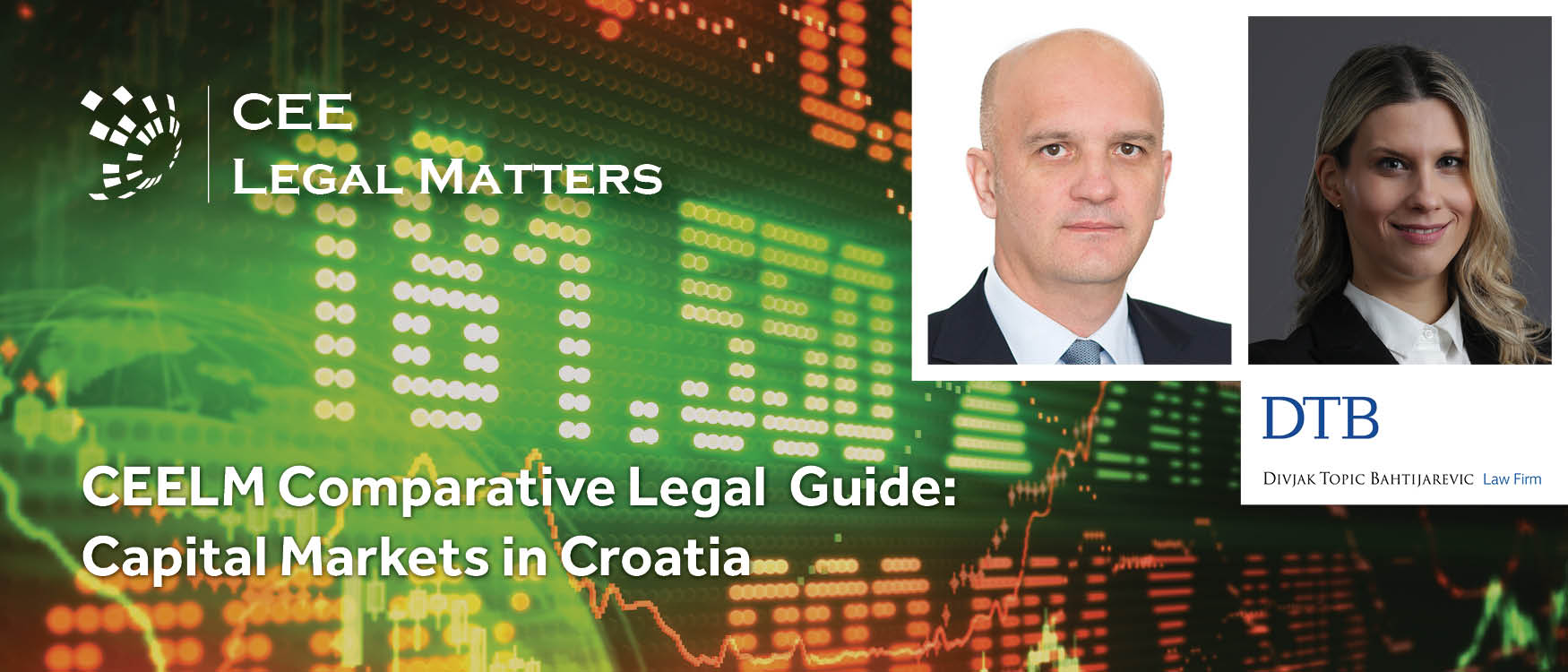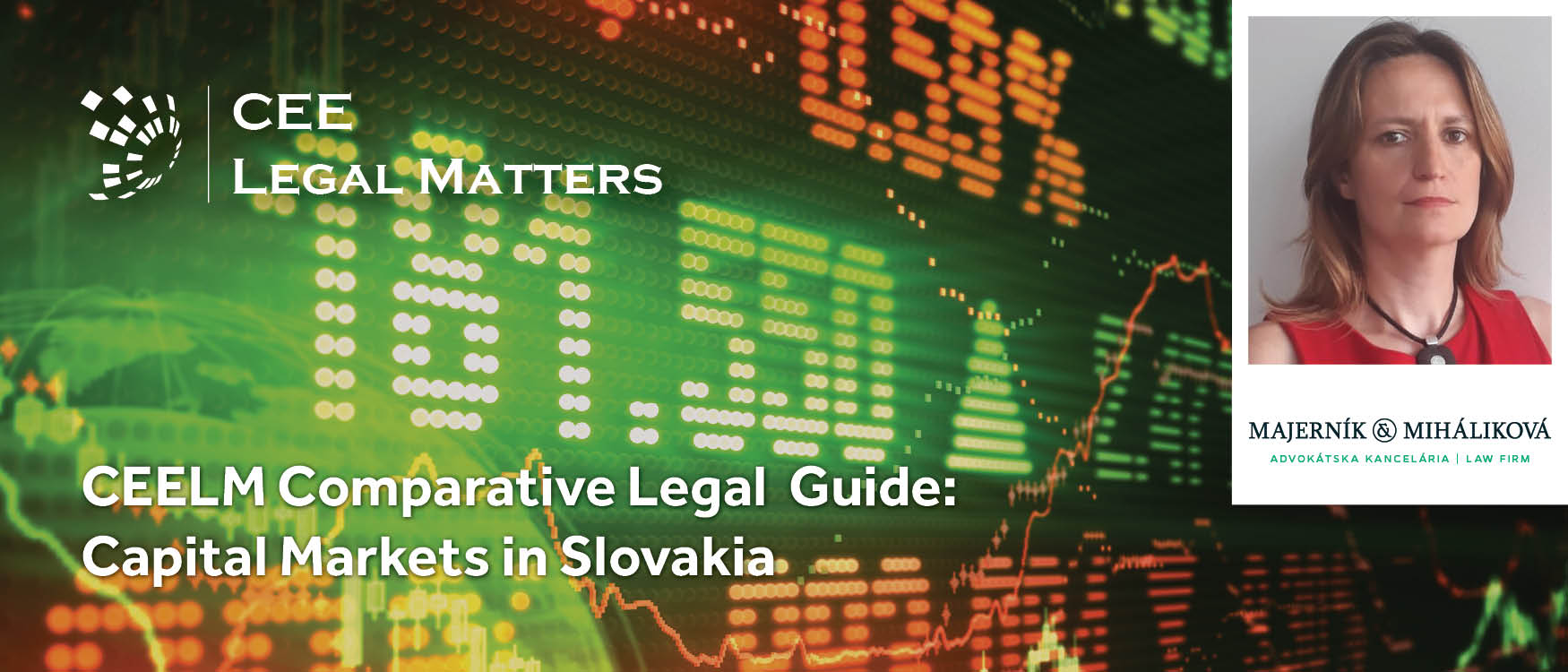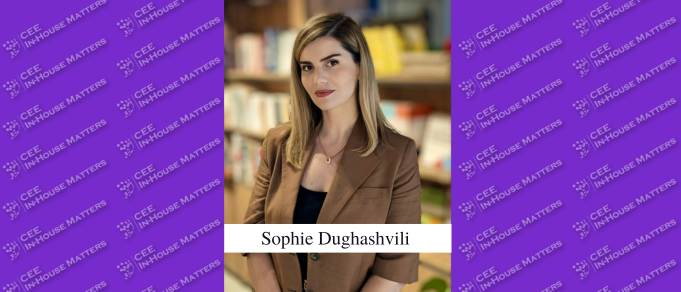Contributed by Tsvetkova Bebov Komarevski.
Capital Markets in Croatia
Contributed by Divjak, Topic & Bahtijarevic.
Capital Markets in Czechia
Contributed by BBH.
Capital Markets in Estonia
Contributed by Ellex Raidla.
Capital Markets in Hungary
Contributed by Kinstellar.
Capital Markets in Lithuania
Contributed by Walles.
Capital Markets in Moldova
Contributed by ACI Partners.
Capital Markets in Montenegro
Contributed by Karanovic & Partners.
Capital Markets in North Macedonia
Contributed by ODI Law.
Capital Markets in Poland
Contributed by Rymarz Zdort.
Capital Markets in Romania
Contributed by Filip and Company.
Capital Markets in Russia
Contributed by Alrud.
Capital Markets in Serbia
Contributed by Karanovic & Partners.
Capital Markets in Slovakia
Contributed by Majernik & Mihalikova.
Capital Markets in Slovenia
Contributed by Jadek & Pensa.
Capital Markets in Turkey
Contributed by Paksoy.
Capital Markets in Ukraine
Contributed by Avellum.
Capital Markets in UK
Contributed by Shearman & Sterling.






































